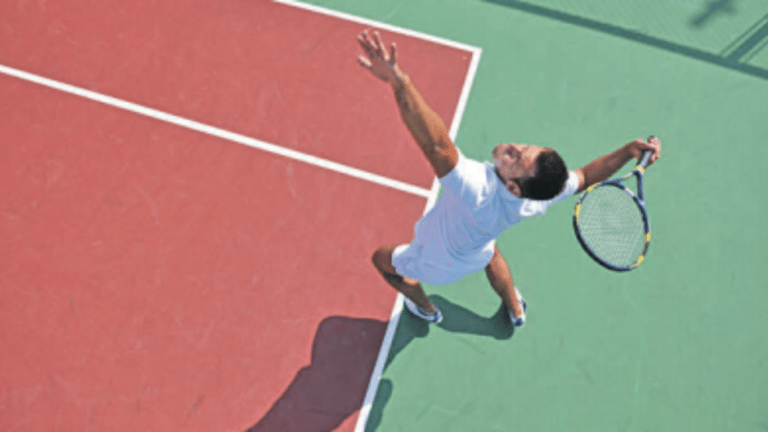Does your elbow turn to concrete, and your legs to lead, when you try to serve out a match? Learn to settle down with our 10-step plan:
Every tennis textbook teaches you how to reach up for your serve, extend through your forehand, and take little steps between your shots. These skills are essential, but most authors and teaching pros leave out the final chapter in the book of tennis success: How to Close. You can have the world’s most elegant strokes, but you’re not going to get very far if you can’t use them to win the final game of a match.
Everyone recognizes that serving out a match requires a different mental approach, and a higher level of confidence, than serving at 2–1. So why don’t we teach players how to cross the finish line? Maybe it’s because we believe mental toughness is something you’re born with, rather than something you learn.
According to Dr. Alexandra Guhde, a clinical psychologist who has worked with tennis players, this is a harmful myth.
“The difficulty is that people start to think of themselves—and others begin to think of them—as chokers,” Guhde says. “There’s no such thing. A choker is just a person who’s still learning to be clutch.”
With that hopeful idea in mind, here’s our version of that final chapter in the tennis textbook: A 10-step plan on how to close.



